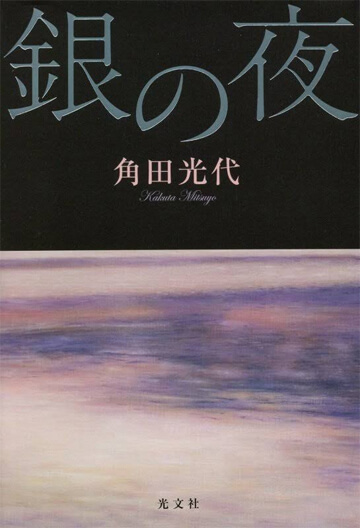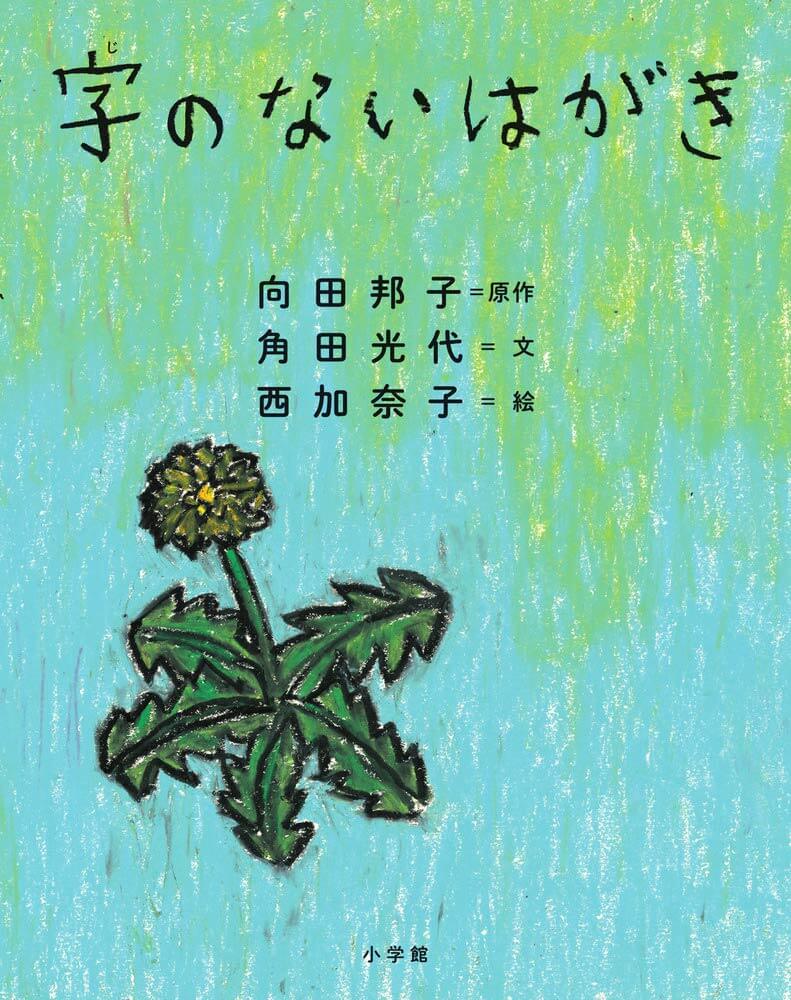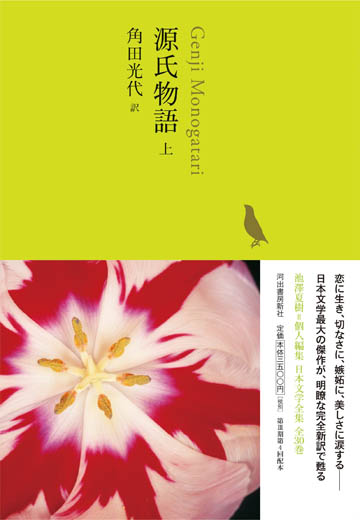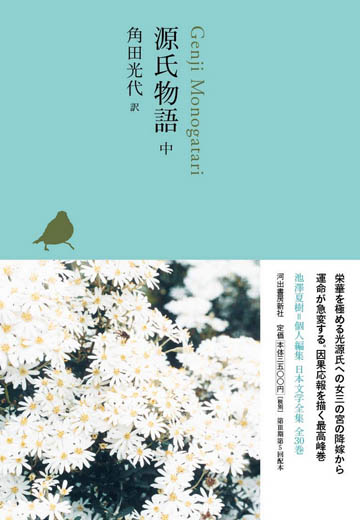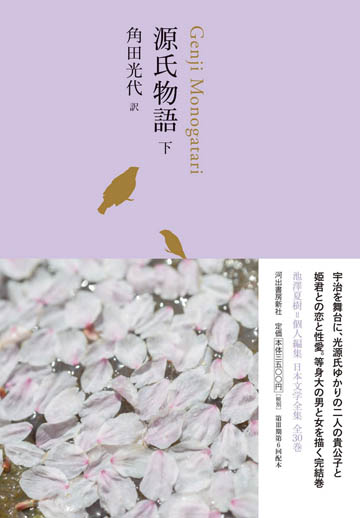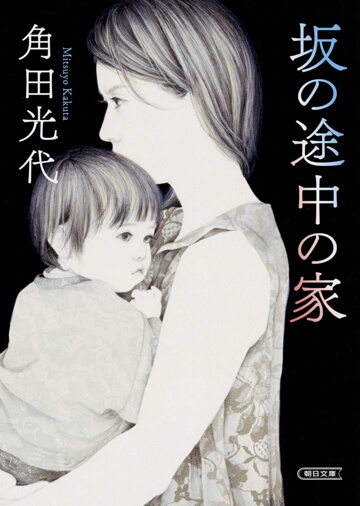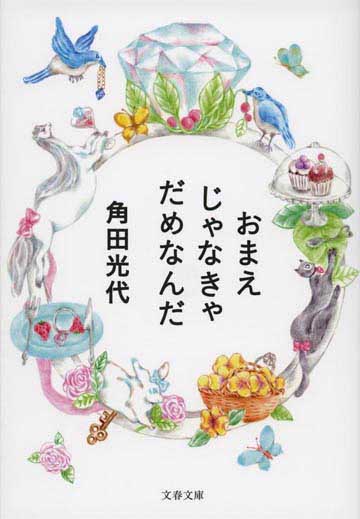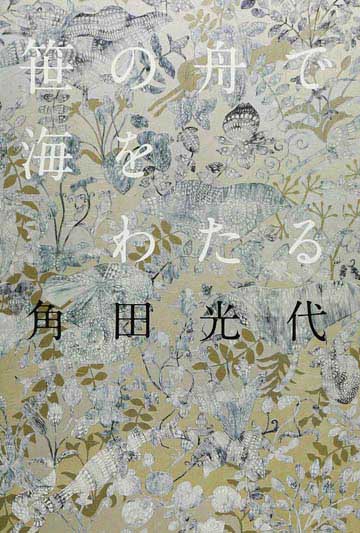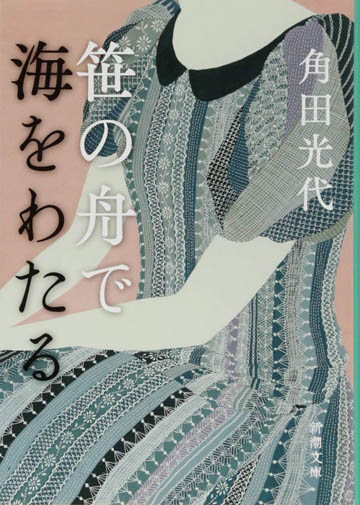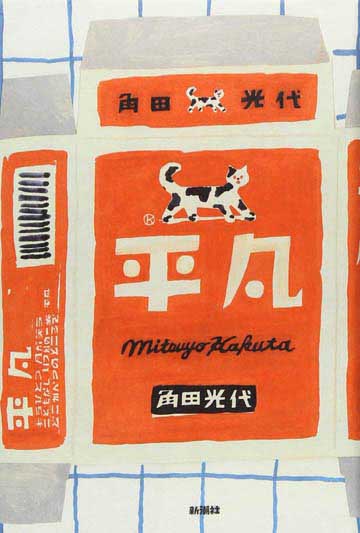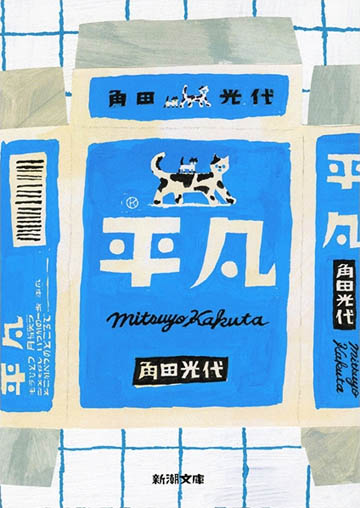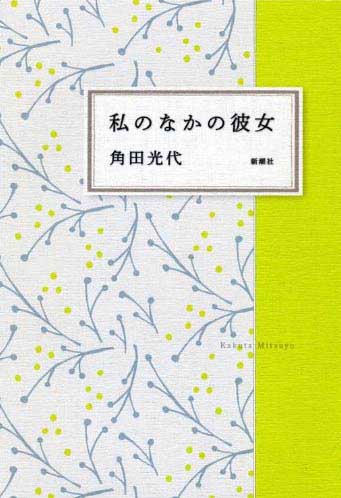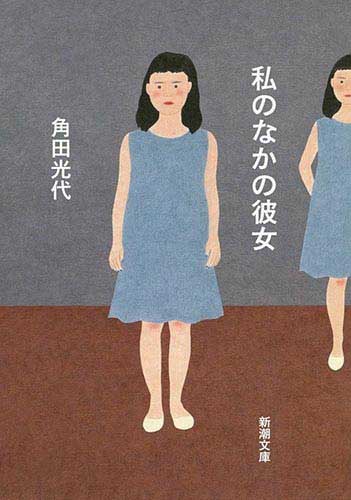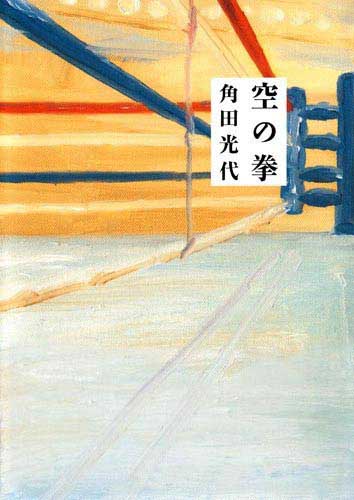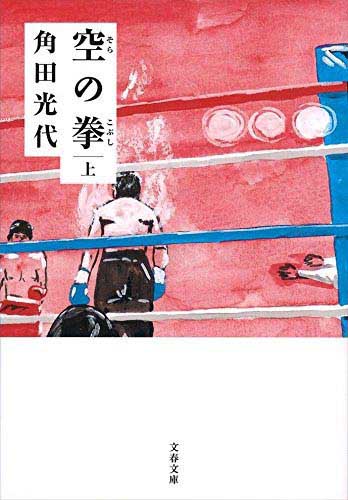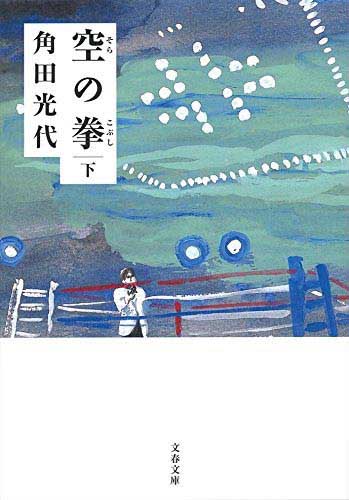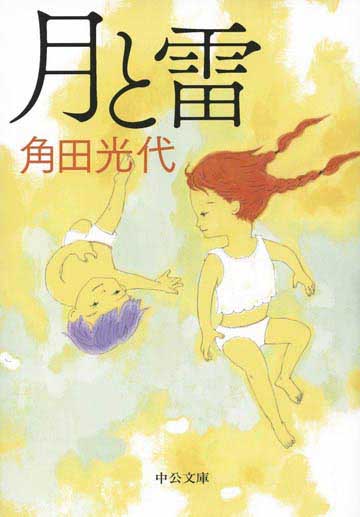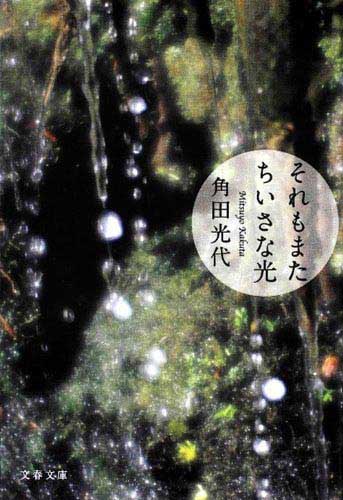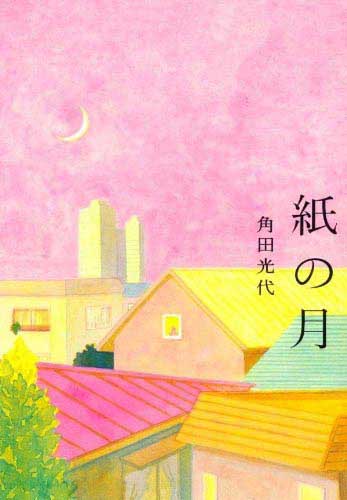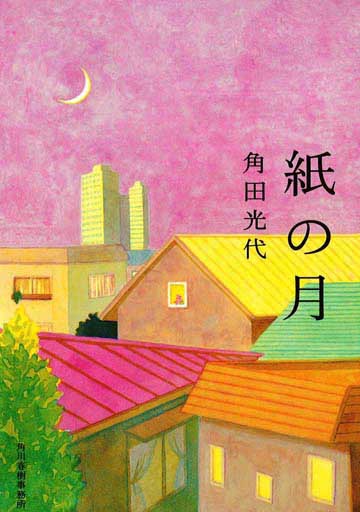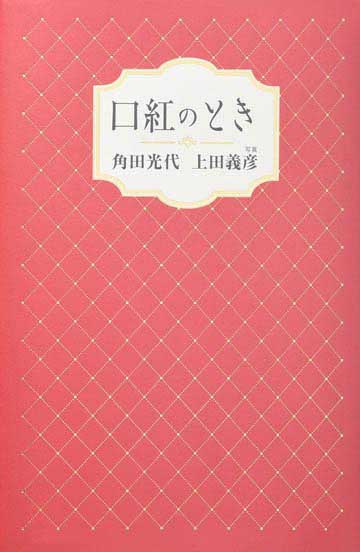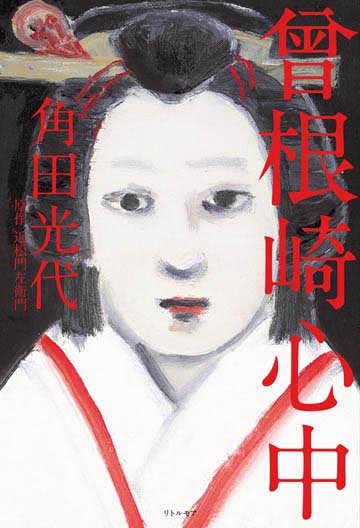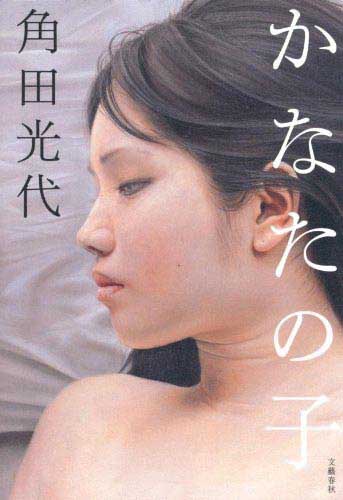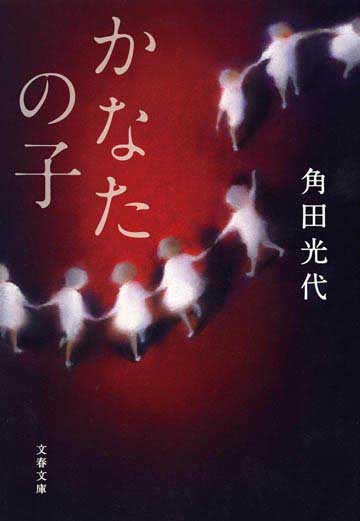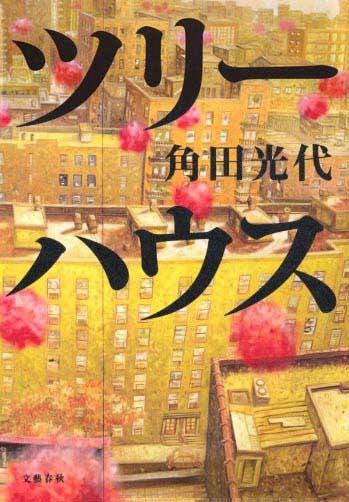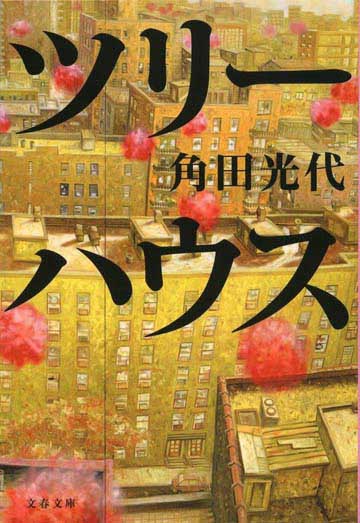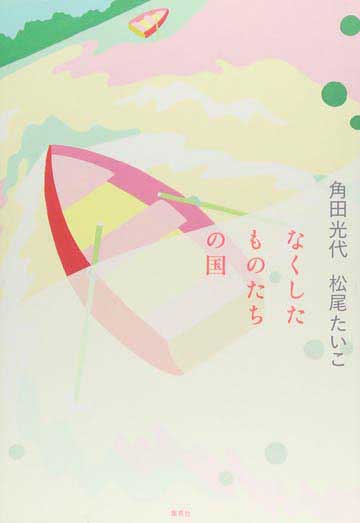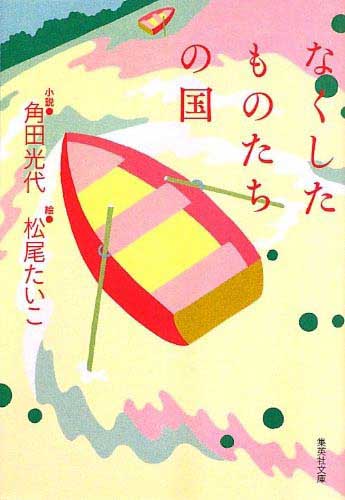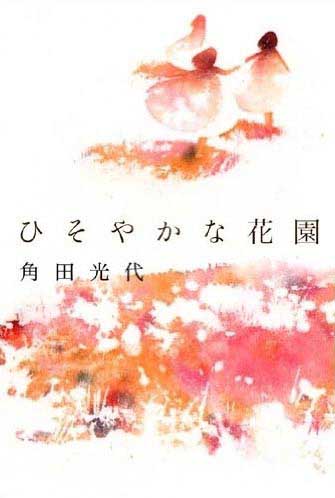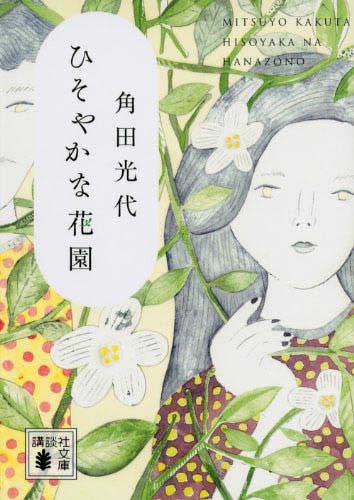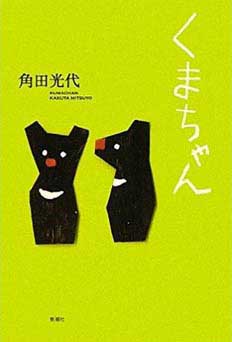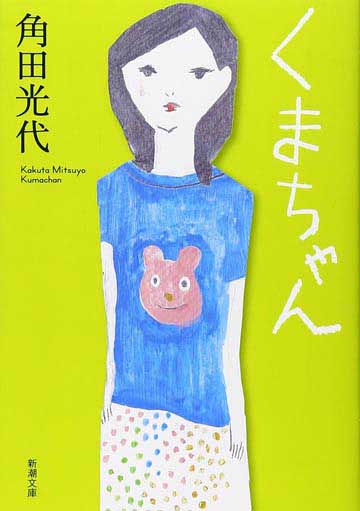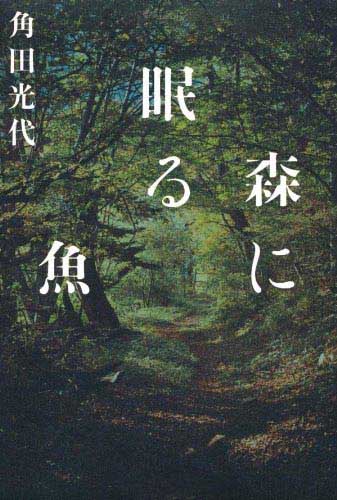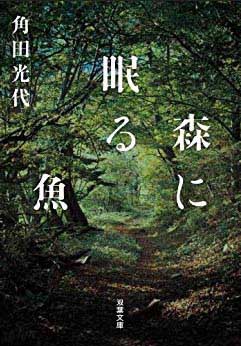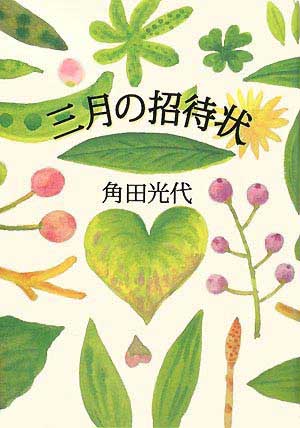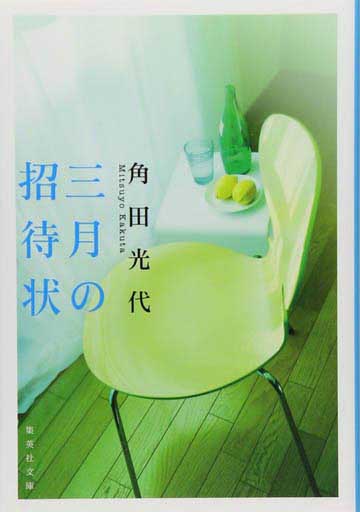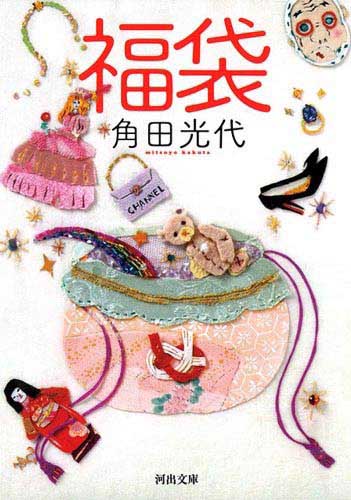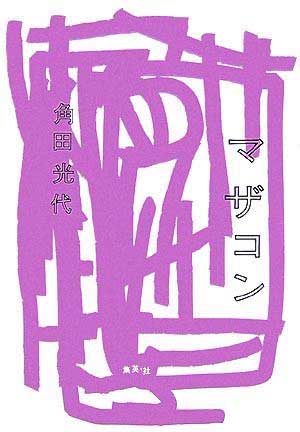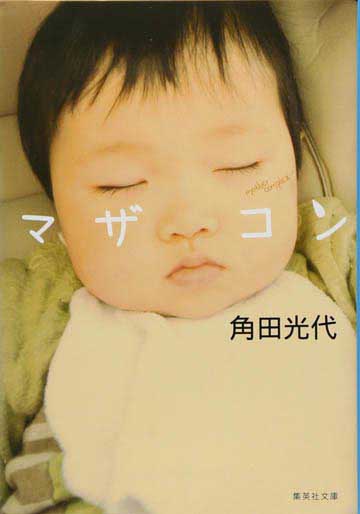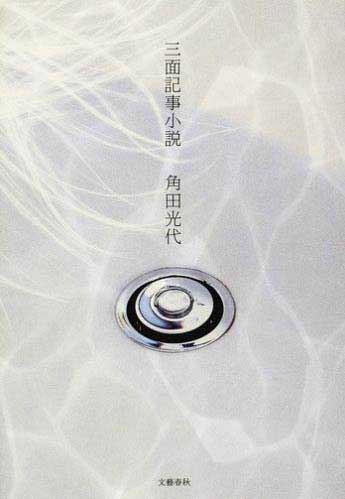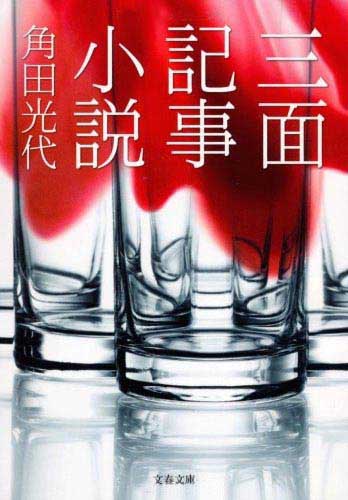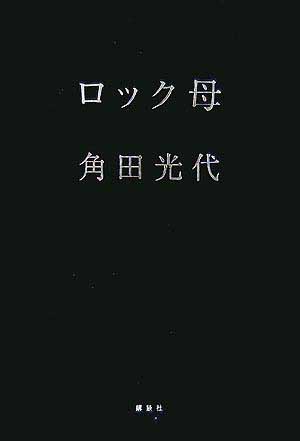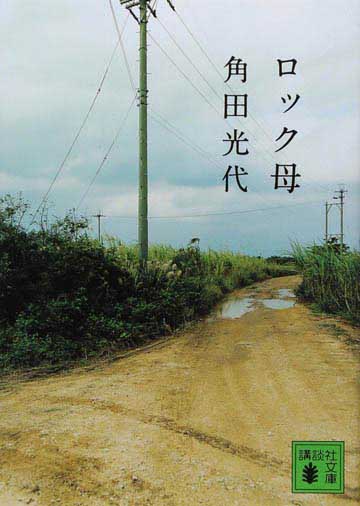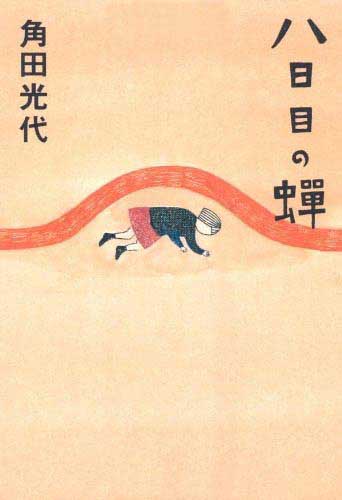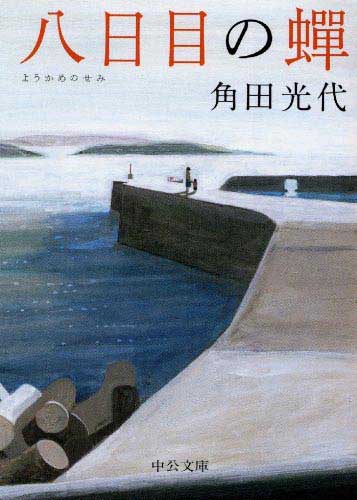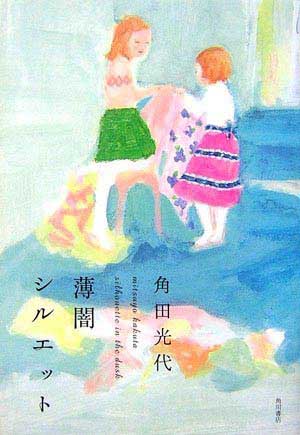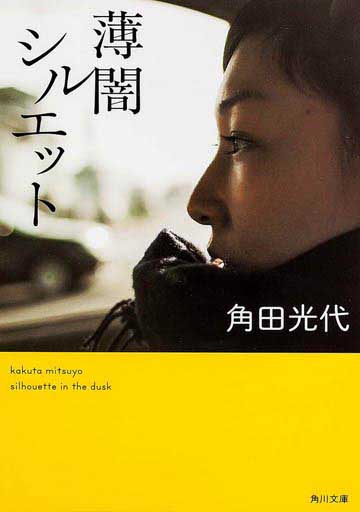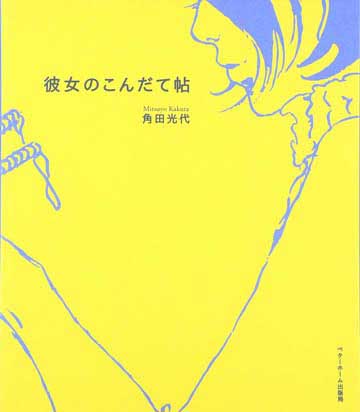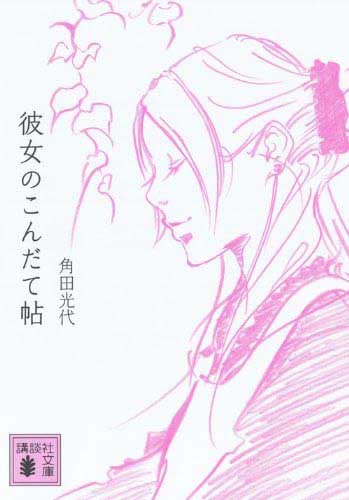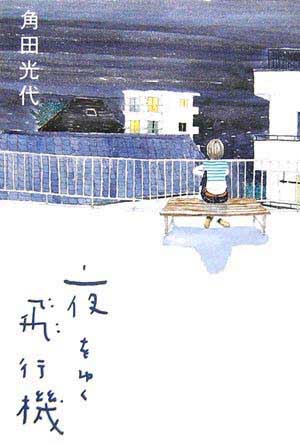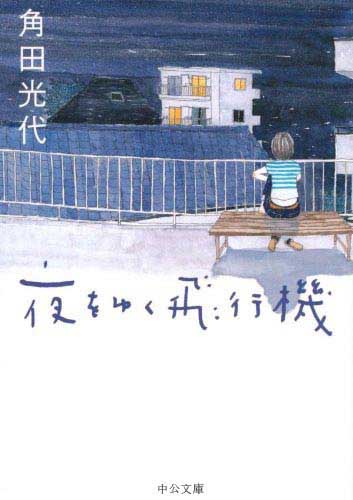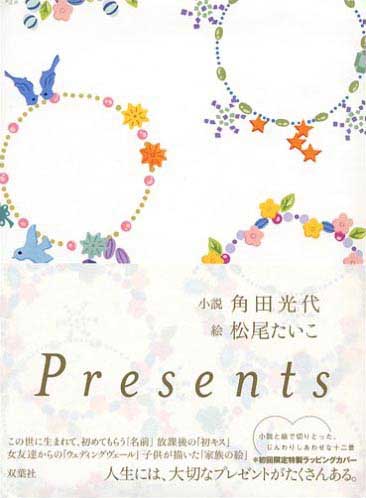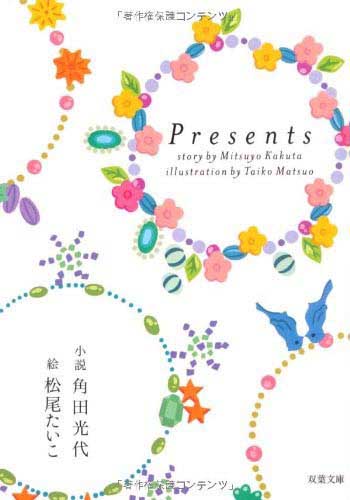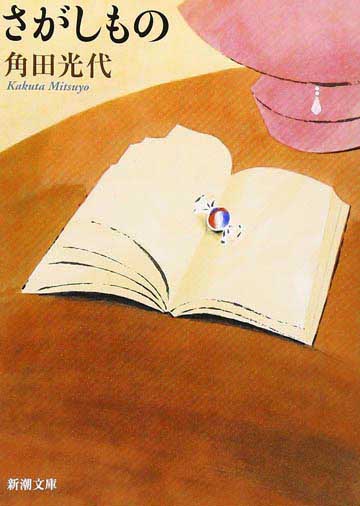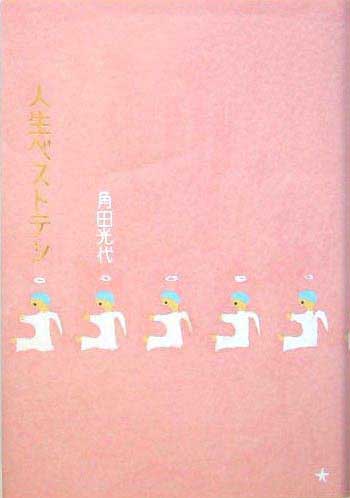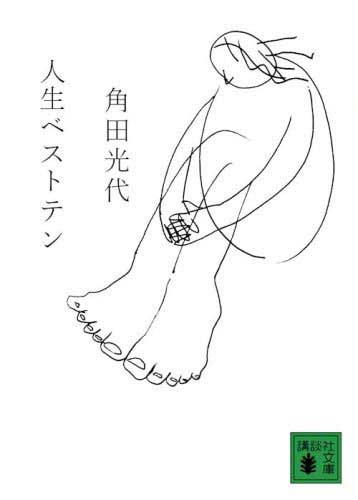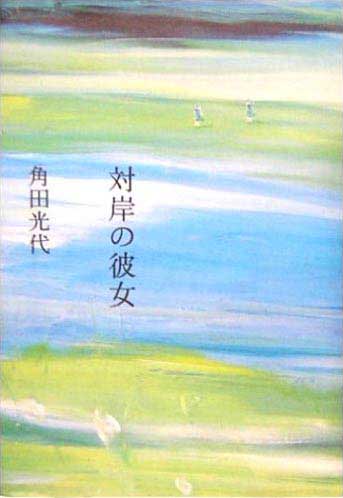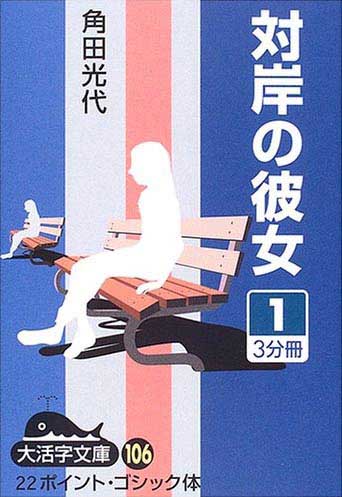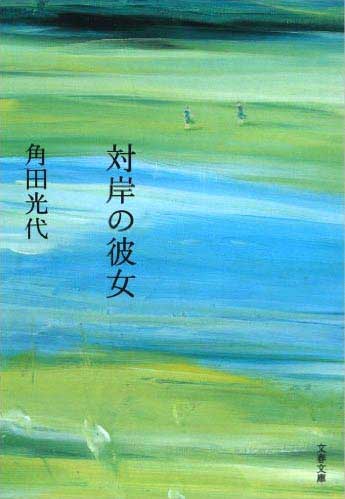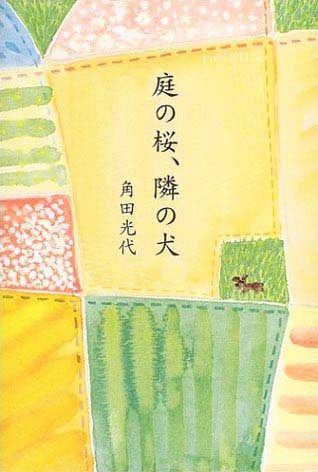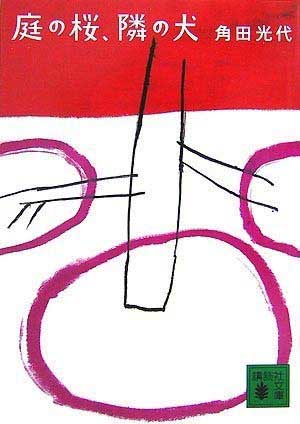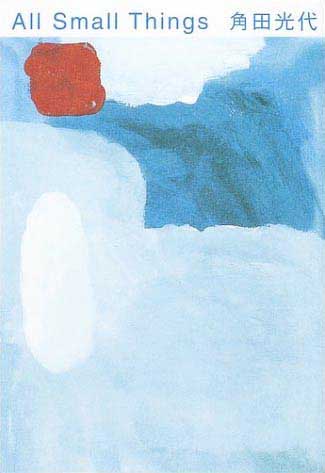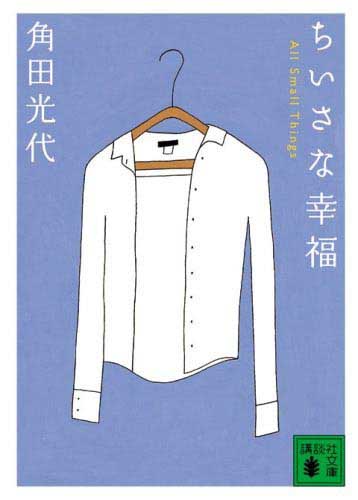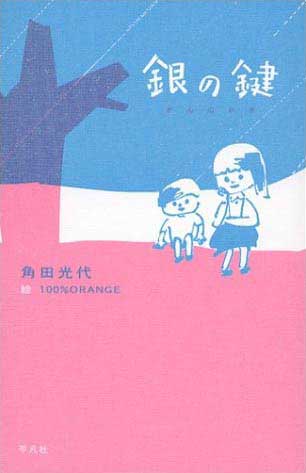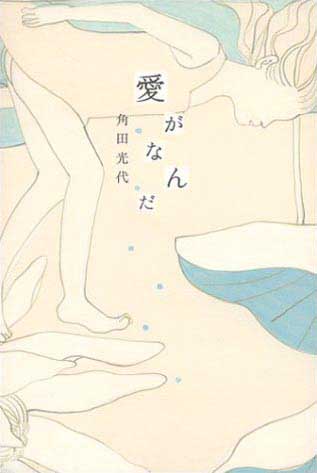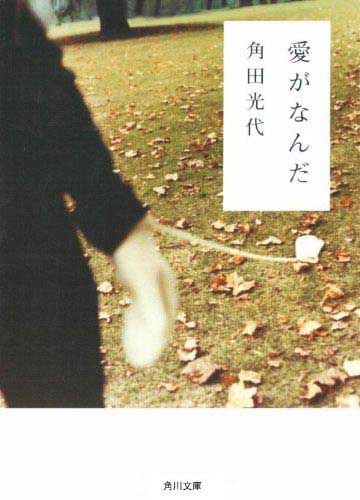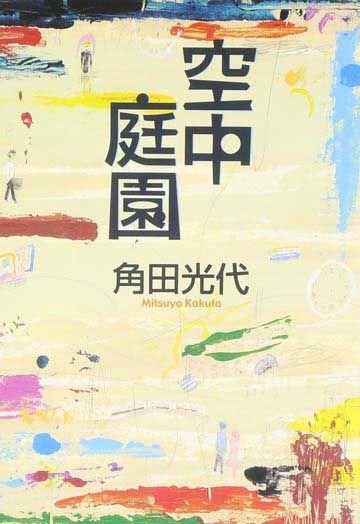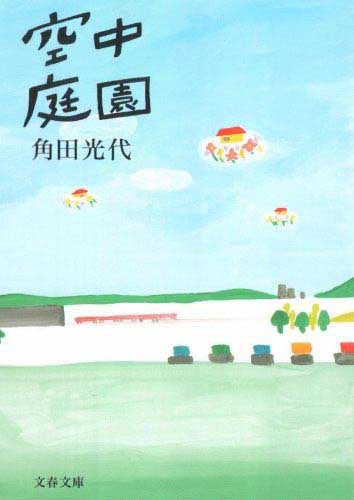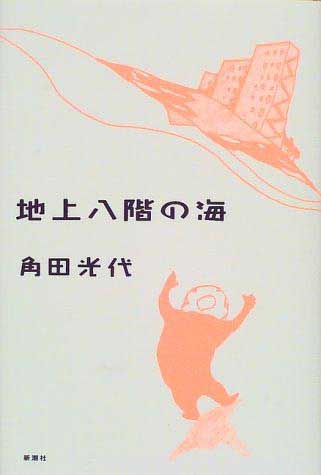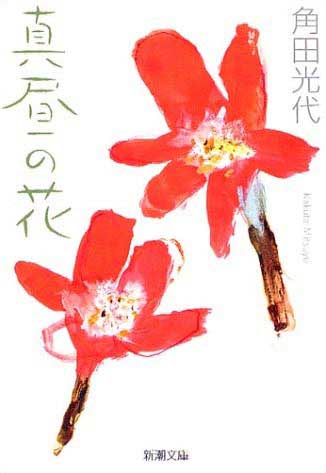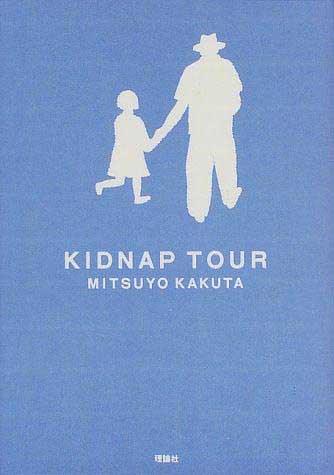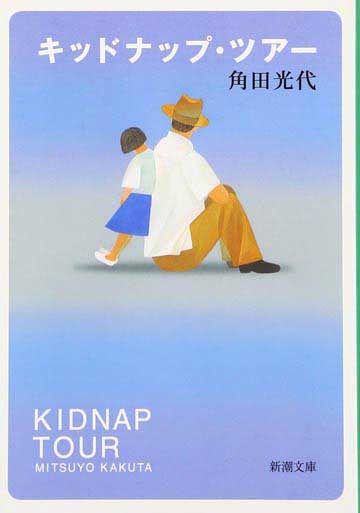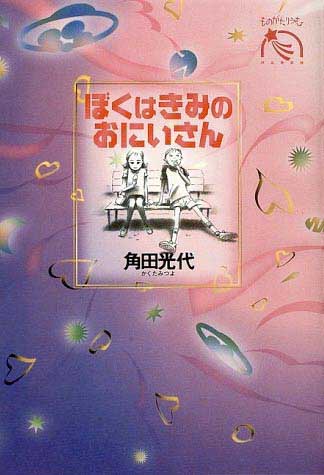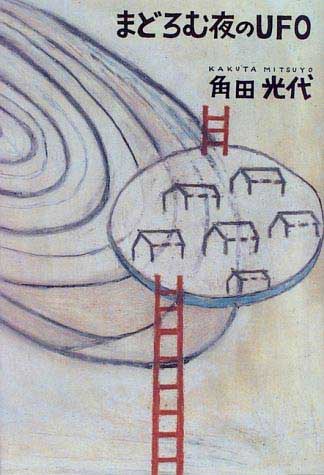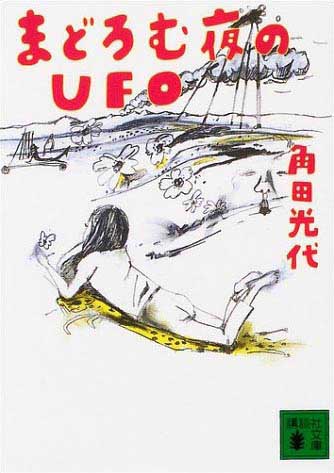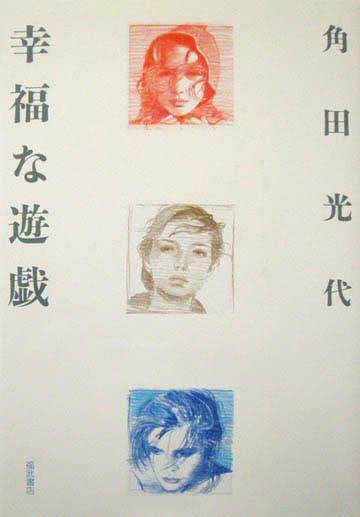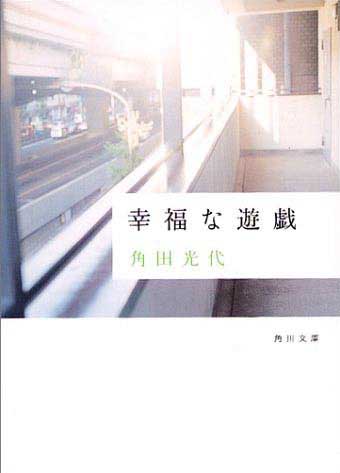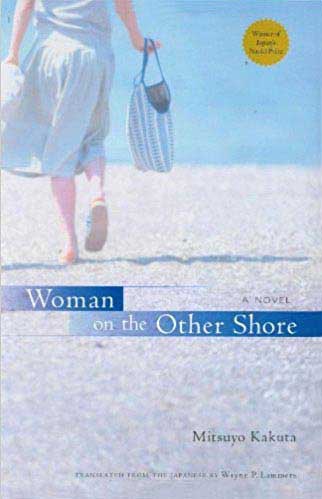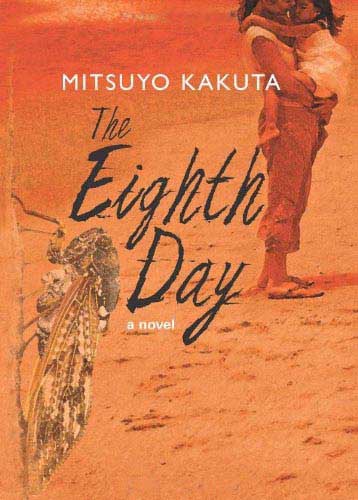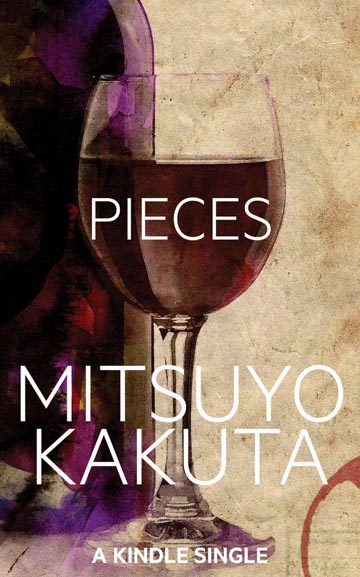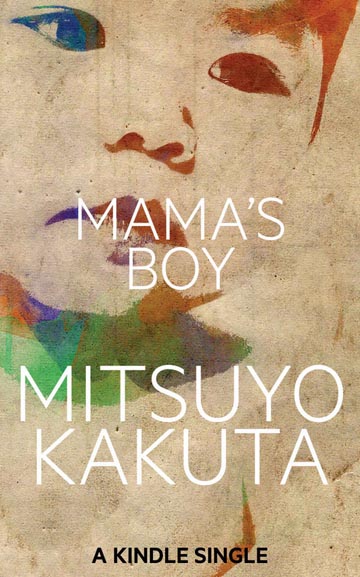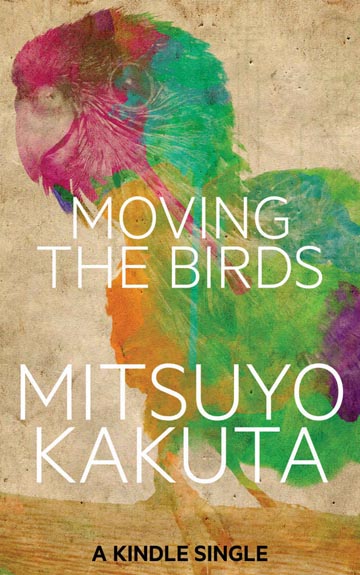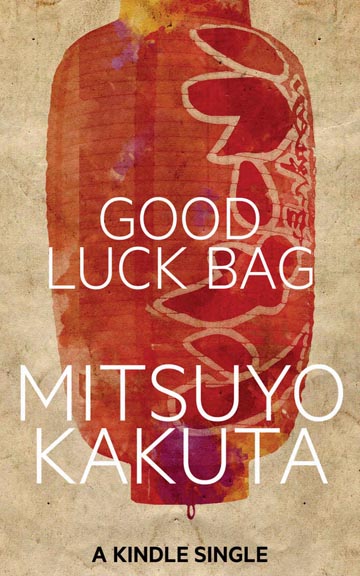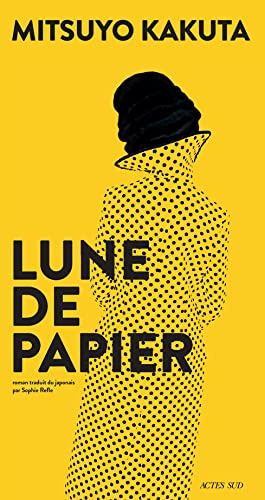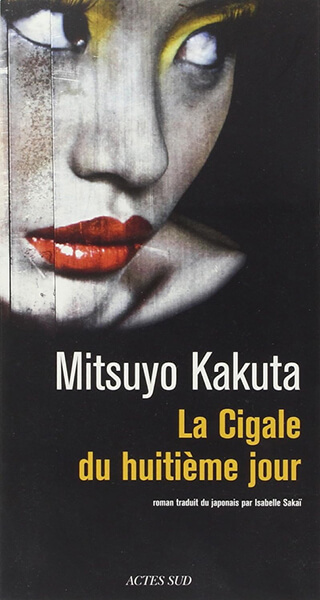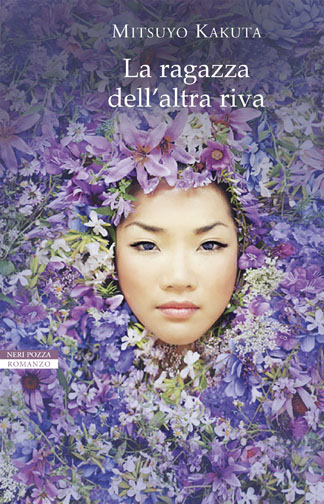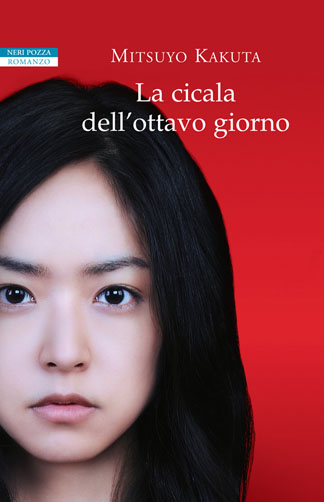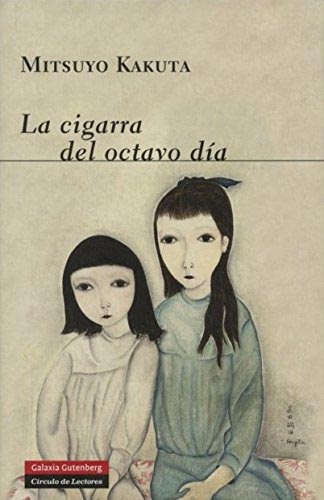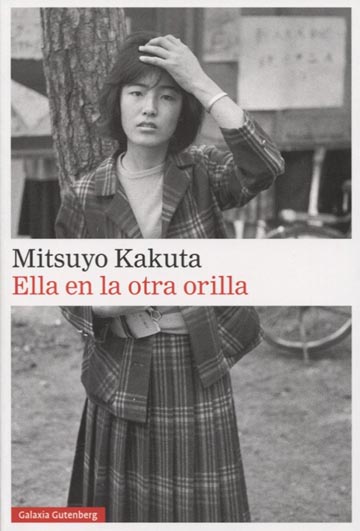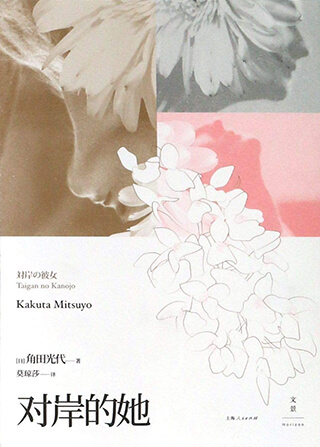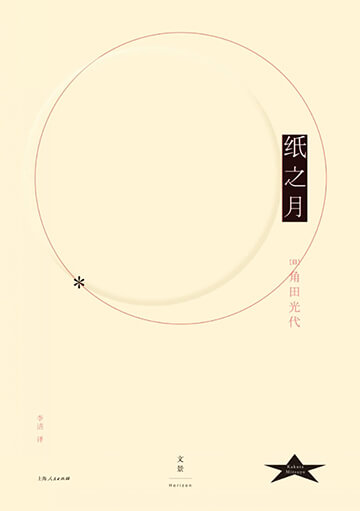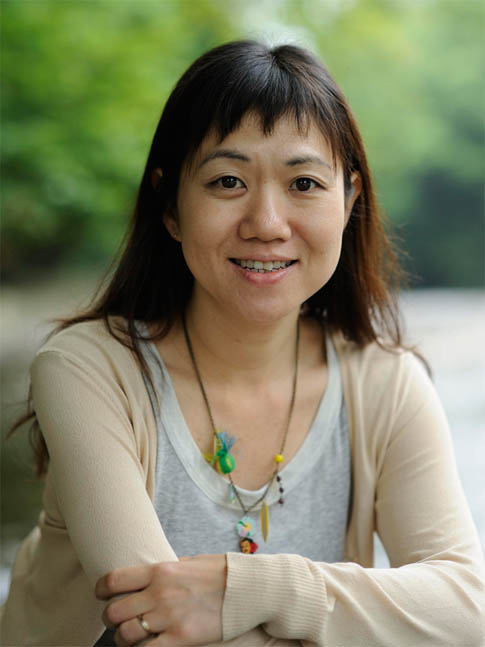
Mitsuyo Kakuta
“When I went to primary school I had to write compositions. It was because I read so much that I could already write fluently. I was so happy and in year one when we were asked to write about what we wanted to be in the future, I wrote that I would become an author”.Mitsuyo Kakuta decided in primary school that she wanted to become a writer. She ignored all subjects like maths that she thought wouldn’t help her fulfill her dream and focused solely on Japanese language and literature classes. The strategy worked, as she submitted her first piece of writing to a newcomers’ competition (run by a famous literary magazine) when she was just 19. Though she made the final shortlist, she didn’t make the final cut.
However, she didn’t need to wait long to fulfill her childhood ambition. Her first novel Kofuku na yugi (A Blissful Pastime) written while she was still a student at university in Tokyo won the Kaien Prize for New Writers. She has gone on to win numerous Japanese literary awards and is now one of Japan’s best-known contemporary authors. Yōkame no semi (The Eighth Day), probably her best-known title to-date, sold over a million copies and was made into one of Japan’s most popular television series. She remains prolific, having written over 80 works of fiction since her debut novel in 1990.
“One of the best and most widely read writers in Japan today,” Mitsuyoshi Numano, Professor of Literature, Tokyo University.
- Mitsuyo Kakuta
Mitsuyo Kakuta is one the most popular and respected contemporary novelists in Japan. She was born in 1967 in Kanagawa Prefecture, Japan’s second populous, located adjacent to Tokyo, which has Yokohama as its capital. After attending High School in Yokohama she won a place at Waseda University in Tokyo.
She submitted her first piece of creative writing to a competition run by a major literary magazine when she was still a student, aged just 19. She made the shortlist, but ultimately her work was not selected for publication. The experience made her even more determined to make her writing debut. It didn’t take long. By the time she graduated from the Wasada University in 1989, she had already written her first novel, Kofuku na yugi (A Blissful Pastime). The following year it won the high-profile literary award, the Kaien Prize for New Writers.
Waseda University, a private research orientated university founded in 1882, has a long line of students that have gone on to become respected and successful authors; Edogawa Ranpo, Kazufumi Shiraishi, Yōko Ogawa, Haruki Murakami and Risa Wataya, to name just a few. It runs a highly regarded and popular seminar on creative and novel writing, making it the ideal university choice for aspiring authors, like Kakuta.
Kakuta has continued to write since graduating from university and has never had any other form of employment. After her first decade as a dedicated professional author and writer she switched from writing literary fiction, having debuted her work in a literary magazine, to writing more for the mass market.
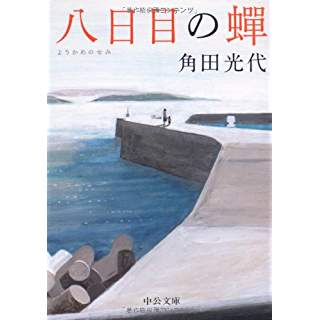 Book cover of Japanese edition of The Eighth Day.
Book cover of Japanese edition of The Eighth Day.Two of her bestselling novels Yōkame no semi (The Eighth Day), which has sold over a million copies, and Kami no tsuki (Pale Moon), which won the Shibata Renzaburō Award, have been made into critically acclaimed film and television series in Japan.
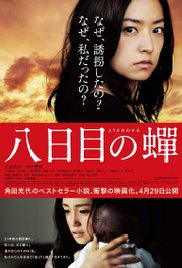 Original film poster of the Eighth Day.
Original film poster of the Eighth Day.
The television series adaptation of The Eighth Day was released in 2010 to critical acclaim and starred Hiromi Nagasuku, a well-known actress and member of the J-pop group Ribbon.
It went on to win 13 awards including best screenplay and best director. The Eighth Day was initially published as a serialized novel in the evening edition of The Yomiuri Newspaper, Japan’s most read newspaper founded in 1874, with a daily circulation of 10 million (between November 2005 to July 2006) and subsequently in book format in 2007.
Kakuta has been nominated for and awarded numerous literary awards since publishing her first award-winning student novel. She won the Naoki Prize for her novel Taigan no kanojo (Woman on the Other Shore) in 2005, the Yasunari Kawabata Literary Prize, named after the Nobel Prize winner, for her short story Rokku Haha (Rock Mama) in 2006 and the Chuo Koron Literary Prize for The Eighth Day in 2007. She has also been nominated three times for the Akutagawa Prize.
- Kakuta is much more focused on the mass market than at the start of her career, and is now one of Japan’s most widely read and popular authors
Kakuta, a dedicated wordsmith and very versatile author, is renowned for her narratives that depict the lives of women in their mid-thirties. When she started writing, it was still unusual for people in Japan to express their true feelings about their parents and upbringing, which is why she thought parent-child dynamics (especially mother-daughter), as well as the challenge of motherhood, were important topics to focus on. Her books have been published in translation in French, Spanish, Korean, Chinese, and English.
In addition to writing novels and short stories, Kakuta finds the time to blog about her cat, which is not as surprising as it might first sound for one of Japan’s busiest authors. The cat has long held an important place in the tradition of Japanese literature, folk stories and art.
Many ‘cat books’ feature amongst the ranks of Japan’s bestselling titles. Soseki Natsume (1867-1916) wrote a highly regarded satirical account of Japan’s Meiji Era (1868-1912) titled: I am a Cat, for example, in 1905. Junichiro Tanizaki (1886-1965) who is held in similar high regard wrote the novella A Cat, A Man and Two Women in 1936, when he was in the process of adapting The Tale of Genji into modern Japanese, a task that coincidently Kakuta is currently working on for her generation.
In addition to writing she also sits on the judging panels of more than five different literary awards in Japan.
- Mitsuyo Kakuta
Mitsuyo Kakuta was born in 1967, in Yokohama, Kanagawa Prefecture, Japan. She wanted to be a writer from a very early age and even wrote an essay to this effect while at primary school. Growing up she loved reading books by Miyoko Matsutani (1926-2015), author of The Crane Maiden, Little Momo-chan and Taro The Dragon Boy, as well as Kenji Miyazawa (1896-1933), author of Strong in the Rain and Night on the Milky Way Train as well as Pippi Longstocking by Astrid Lindgren (1907-2002).
- Japanese Editions
 Gin no yoru (Silver Night), 2020
Gin no yoru (Silver Night), 2020 Ji no nai hagaki (The Blank Postcard, Original by Kuniko Mukoda), 2019
Ji no nai hagaki (The Blank Postcard, Original by Kuniko Mukoda), 2019 Genjimonogatari (The Tale of Genji, volume 1), 2017Translation
Genjimonogatari (The Tale of Genji, volume 1), 2017Translation Genjimonogatari (The Tale of Genji, volume 2), 2018Translation
Genjimonogatari (The Tale of Genji, volume 2), 2018Translation Genjimonogatari (The Tale of Genji, volume 3), 2020Translation
Genjimonogatari (The Tale of Genji, volume 3), 2020Translation Saka no tochuu no ie (The House on the Slope), 2016
Saka no tochuu no ie (The House on the Slope), 2016
- Saka no tochuu no ie (The House on the Slope), 2018[Bunko]
- Omae janakya dame nanda (It Has to be You), 2015[Bunko]
 Sasa no fune de umi wo wataru (Crossing the Sea On a Bamboo-leaf Boat), 2014
Sasa no fune de umi wo wataru (Crossing the Sea On a Bamboo-leaf Boat), 2014- Sasa no fune de umi wo wataru (Crossing the Sea On a Bamboo-leaf Boat), 2017[Bunko]
 Heibon (Mediocrity), 2014Short story collection including: Mouhitotsu (One More) / Tsuki ga warau (The Moon Laughs) / Kotomonashi (Nothing) / Itsuka no ippo (Move Forward One Day) / Heibon (Mediocrity) / Dokoka betsuno tokorode (Somewhere Else)
Heibon (Mediocrity), 2014Short story collection including: Mouhitotsu (One More) / Tsuki ga warau (The Moon Laughs) / Kotomonashi (Nothing) / Itsuka no ippo (Move Forward One Day) / Heibon (Mediocrity) / Dokoka betsuno tokorode (Somewhere Else)
- Heibon (Mediocrity), 2019Short story collection including: Mouhitotsu (One More) / Tsuki ga warau (The Moon Laughs) / Kotomonashi (Nothing) / Itsuka no ippo (Move Forward One Day) / Heibon (Mediocrity) / Dokoka betsuno tokorode (Somewhere Else) [Bunko]
 Watashi no naka no kanojo (The Her as Seen by Me), 2013
Watashi no naka no kanojo (The Her as Seen by Me), 2013 Kawai Hayao Prize
Kawai Hayao Prize- Watashi no naka no kanojo (The Her as Seen by Me), 2016[Bunko]
 Sora no kobushi (Sky Fist), 2012
Sora no kobushi (Sky Fist), 2012- Sora no kobushi (Sky Fist) First Volume, 2015[Bunko]
- Sora no kobushi (Sky Fist) Second Volume, 2015[Bunko]
 Tsuki to kaminari (The Moon and Lightning), 2012
Tsuki to kaminari (The Moon and Lightning), 2012
- Tsuki to kaminari (The Moon and Lightning), 2015[Bunko]
- Sore mo mata chiisana hikari (That is Also a Small Light), 2012[Bunko]
 Kami no tsuki (Paper Moon), 2012
Kami no tsuki (Paper Moon), 2012 Shibata Renzaburo Award
Shibata Renzaburo Award
- Kami no tsuki (Paper Moon), 2014[Bunko]
 Kuchibeni no toki (When Wearing Lipstick), 2012Short story collection including: 6sai (6 Years Old) / 12sai (12 Years Old) / 18sai (18 Years Old) / 29sai (29 Years Old) / 38sai (38 Years Old) / 47sai (47 Years Old) / 65sai (65 Years Old) / 79sai (79 Years Old)
Kuchibeni no toki (When Wearing Lipstick), 2012Short story collection including: 6sai (6 Years Old) / 12sai (12 Years Old) / 18sai (18 Years Old) / 29sai (29 Years Old) / 38sai (38 Years Old) / 47sai (47 Years Old) / 65sai (65 Years Old) / 79sai (79 Years Old) Sonezaki shinjuu (The Love Suicides at Sonezaki, Original by Chikamatsu Monzaemon), 2012
Sonezaki shinjuu (The Love Suicides at Sonezaki, Original by Chikamatsu Monzaemon), 2012 Kanata no ko (The Children Beyond), 2011Short story collection including: Omichiyuki (Mummy) / Dousoukai (Class Reunion) / Yami no hashigo (The Ladder in Darkness) / Douri (Reason) / Zense (Previous Life) / Watashi to watashi dewanai onna (Myself and a Woman Who Isn't Me) / Kanata no ko (The Children Beyond) / Meguru (To Go Around)
Kanata no ko (The Children Beyond), 2011Short story collection including: Omichiyuki (Mummy) / Dousoukai (Class Reunion) / Yami no hashigo (The Ladder in Darkness) / Douri (Reason) / Zense (Previous Life) / Watashi to watashi dewanai onna (Myself and a Woman Who Isn't Me) / Kanata no ko (The Children Beyond) / Meguru (To Go Around) Izumi Kyōka Prize for Literature
Izumi Kyōka Prize for Literature
- Kanata no ko (The Children Beyond), 2013Short story collection including: Omichiyuki (Mummy) / Dousoukai (Class Reunion) / Yami no hashigo (The Ladder in Darkness) / Douri (Reason) / Zense (Previous Life) / Watashi to watashi dewanai onna (Myself and a Woman Who Isn't Me) / Kanata no ko (The Children Beyond) / Meguru (To Go Around) [Bunko]
 Tsuriihausu (Tree House), 2010
Tsuriihausu (Tree House), 2010 Sei Ito Literary Prize
Sei Ito Literary Prize- Tsuriihausu (Tree House), 2013[Bunko]
 Nakushita monotachi no kuni (Country of the Lost), 2010
Nakushita monotachi no kuni (Country of the Lost), 2010 Sei Ito Literary Prize
Sei Ito Literary Prize- Nakushita monotachi no kuni (Country of the Lost), 2013[Bunko]
 Hisoyakana hanazono (Quiet Flower Garden), 2010
Hisoyakana hanazono (Quiet Flower Garden), 2010- Hisoyakana hanazono (Quiet Flower Garden), 2014[Bunko]
 Kumachan (Kuma-chan), 2009Short story collection including: Kumachan (Kuma-chan) / Aidoru (Idol) / Shoubu renai (Love Game) / Koumori (Bat) / Ukikusa (Floating Weed) / Hikari no ko (Child of Light) / Otome soudanshitsu (Maiden Consultation Room)
Kumachan (Kuma-chan), 2009Short story collection including: Kumachan (Kuma-chan) / Aidoru (Idol) / Shoubu renai (Love Game) / Koumori (Bat) / Ukikusa (Floating Weed) / Hikari no ko (Child of Light) / Otome soudanshitsu (Maiden Consultation Room)- Kumachan (Kuma-chan), 2011Short story collection including: Kumachan (Kuma-chan) / Aidoru (Idol) / Shoubu renai (Love Game) / Koumori (Bat) / Ukikusa (Floating Weed) / Hikari no ko (Child of Light) / Otome soudanshitsu (Maiden Consultation Room) [Bunko]
 Mori ni nemuru sakana (The Fish That Sleeps in the Forest), 2008
Mori ni nemuru sakana (The Fish That Sleeps in the Forest), 2008- Mori ni nemuru sakana (The Fish That Sleeps in the Forest), 2011[Bunko]
 Sangatsu no shoutaijou (March Invitation), 2008Short story collection including: Sangatsu no shoutaijou (March Invitation) / Shigatsu no paati (April Party) / Rokugatsu no deeto (June Date) / Hachigatsu no kentai (August Fatigue) / Kugatsu no kokuhaku (September Proposal) / Juugatsu no yuuutsu (October Melancholy) / Juunigatsu no shousou (December Frustration) / Ichigatsu no shissou (January Disappearance) / Nigatsu no ketsudan (February Decision) / Sangatsu no kaisou (March Reminiscence) / Shigatsu no kitaku (April Return Home) / Gogatsu no shikiten (May Ceremony)
Sangatsu no shoutaijou (March Invitation), 2008Short story collection including: Sangatsu no shoutaijou (March Invitation) / Shigatsu no paati (April Party) / Rokugatsu no deeto (June Date) / Hachigatsu no kentai (August Fatigue) / Kugatsu no kokuhaku (September Proposal) / Juugatsu no yuuutsu (October Melancholy) / Juunigatsu no shousou (December Frustration) / Ichigatsu no shissou (January Disappearance) / Nigatsu no ketsudan (February Decision) / Sangatsu no kaisou (March Reminiscence) / Shigatsu no kitaku (April Return Home) / Gogatsu no shikiten (May Ceremony)- Sangatsu no shoutaijou (March Invitation), 2011Short story collection including: Sangatsu no shoutaijou (March Invitation) / Shigatsu no paati (April Party) / Rokugatsu no deeto (June Date) / Hachigatsu no kentai (August Fatigue) / Kugatsu no kokuhaku (September Proposal) / Juugatsu no yuuutsu (October Melancholy) / Juunigatsu no shousou (December Frustration) / Ichigatsu no shissou (January Disappearance) / Nigatsu no ketsudan (February Decision) / Sangatsu no kaisou (March Reminiscence) / Shigatsu no kitaku (April Return Home) / Gogatsu no shikiten (May Ceremony) [Bunko]
 Fukubukuro (Lucky Bag), 2008Short story collection including: Hako Obasan (Box Lady) / Igii·poppu wo kiite imasuka (Are You Listening to Iggy Pop?) / Shirotteiu yori gin (Silver, Rather than White) / Fushigichan (Ms. Wonder) / Haha no yuigon (Mother's Will) / Karisome (Temporary) / Fukubukuro (Lucky Bag)
Fukubukuro (Lucky Bag), 2008Short story collection including: Hako Obasan (Box Lady) / Igii·poppu wo kiite imasuka (Are You Listening to Iggy Pop?) / Shirotteiu yori gin (Silver, Rather than White) / Fushigichan (Ms. Wonder) / Haha no yuigon (Mother's Will) / Karisome (Temporary) / Fukubukuro (Lucky Bag)- Fukubukuro (Lucky Bag), 2010Short story collection including: Hako Obasan (Box Lady) / Igii·poppu wo kiite imasuka (Are You Listening to Iggy Pop?) / Shirotteiu yori gin (Silver, Rather than White) / Fushigichan (Ms. Wonder) / Haha no yuigon (Mother's Will) / Karisome (Temporary) / Fukubukuro (Lucky Bag) [Bunko]
 Mazakon (Mother Complex), 2007Short story collection including: Sora wo keru (Kick the Sky) / Ame wo wataru (Cross the Rain) / Tori wo hakobu (Carry the Bird) / Paseri to onsen (Parsley and Hot Springs) / Mazakon (Mother Complex) / Futari gurashi (Living Together) / Kurai, Beibii, kurai (Cry, Baby, Cry) / Hatsukoi tsuaa (First Love Tour)
Mazakon (Mother Complex), 2007Short story collection including: Sora wo keru (Kick the Sky) / Ame wo wataru (Cross the Rain) / Tori wo hakobu (Carry the Bird) / Paseri to onsen (Parsley and Hot Springs) / Mazakon (Mother Complex) / Futari gurashi (Living Together) / Kurai, Beibii, kurai (Cry, Baby, Cry) / Hatsukoi tsuaa (First Love Tour)- Mazakon (Mother Complex), 2010Short story collection including: Sora wo keru (Kick the Sky) / Ame wo wataru (Cross the Rain) / Tori wo hakobu (Carry the Bird) / Paseri to onsen (Parsley and Hot Springs) / Mazakon (Mother Complex) / Futari gurashi (Living Together) / Kurai, Beibii, kurai (Cry, Baby, Cry) / Hatsukoi tsuaa (First Love Tour) [Bunko]
 Sanmenkiji shousetsu (Political News Novel), 2007Short story collection including: Ai no su (Nest of Love) / Yuube no hanabi (Last Night's Fireworks) / Kanata no shiro (The Distant Castle) / Eien no hanazono (The Eternal Flower Garden) / Akai fudebako (The Red Pencil Case) / Hikari no kawa (River of Light)
Sanmenkiji shousetsu (Political News Novel), 2007Short story collection including: Ai no su (Nest of Love) / Yuube no hanabi (Last Night's Fireworks) / Kanata no shiro (The Distant Castle) / Eien no hanazono (The Eternal Flower Garden) / Akai fudebako (The Red Pencil Case) / Hikari no kawa (River of Light)
- Sanmenkiji shousetsu (Political News Novel), 2010Short story collection including: Ai no su (Nest of Love) / Yuube no hanabi (Last Night's Fireworks) / Kanata no shiro (The Distant Castle) / Eien no hanazono (The Eternal Flower Garden) / Akai fudebako (The Red Pencil Case) / Hikari no kawa (River of Light) [Bunko]
 Rokku haha (Rock Mother), 2007Short story collection including: Yuube no kamisama (Last Evening's God) / Midori no nezumi no fun (The Green Rat's Droppings) / Bakuchikuya (Evening Firecrackers) / Kanojo (Her) / Rokku haha (Rock Mother) / Chichi no bouru (Father's Ball) / Iri no kekkonshiki (Iri's Wedding)
Rokku haha (Rock Mother), 2007Short story collection including: Yuube no kamisama (Last Evening's God) / Midori no nezumi no fun (The Green Rat's Droppings) / Bakuchikuya (Evening Firecrackers) / Kanojo (Her) / Rokku haha (Rock Mother) / Chichi no bouru (Father's Ball) / Iri no kekkonshiki (Iri's Wedding) Kawabata Yasunari Prize
Kawabata Yasunari Prize- Rokku haha (Rock Mother), 2010Short story collection including: Yuube no kamisama (Last Evening's God) / Midori no nezumi no fun (The Green Rat's Droppings) / Bakuchikuya (Evening Firecrackers) / Kanojo (Her) / Rokku haha (Rock Mother) / Chichi no bouru (Father's Ball) / Iri no kekkonshiki (Iri's Wedding) [Bunko]
 Youka me no semi (The Eighth Day), 2007
Youka me no semi (The Eighth Day), 2007 Chūōkōron literary prize
Chūōkōron literary prize
- Youka me no semi (The Eighth Day), 2011[Bunko]
 Usuyami shiruetto (Silhouette), 2006Short story collection including: Hoomu meido keeki (Home Made Cake) / Tsuki to hankachi (The Moon and the Handkerchief) / Usuyami shiruetto (Silhouette) / Hoomu meido keeki, futatabi (Home Made Cake, Again) / Kioku no ehon (Picture Book of Memories) / Uedingu keeki (Wedding Cake) / Sora ni hoshi, mado ni akari (Stars in the Sky, Lamp in the Window)
Usuyami shiruetto (Silhouette), 2006Short story collection including: Hoomu meido keeki (Home Made Cake) / Tsuki to hankachi (The Moon and the Handkerchief) / Usuyami shiruetto (Silhouette) / Hoomu meido keeki, futatabi (Home Made Cake, Again) / Kioku no ehon (Picture Book of Memories) / Uedingu keeki (Wedding Cake) / Sora ni hoshi, mado ni akari (Stars in the Sky, Lamp in the Window)- Usuyami shiruetto (Silhouette), 2009Short story collection including: Hoomu meido keeki (Home Made Cake) / Tsuki to hankachi (The Moon and the Handkerchief) / Usuyami shiruetto (Silhouette) / Hoomu meido keeki, futatabi (Home Made Cake, Again) / Kioku no ehon (Picture Book of Memories) / Uedingu keeki (Wedding Cake) / Sora ni hoshi, mado ni akari (Stars in the Sky, Lamp in the Window) [Bunko]
 Kanojo no kondate chou (Her Sketchbook), 2006
Kanojo no kondate chou (Her Sketchbook), 2006
- Kanojo no kondate chou (Her Sketchbook), 2011[Bunko]
 Yoru wo yuku hikouki (The Plane that Flies at Night), 2006
Yoru wo yuku hikouki (The Plane that Flies at Night), 2006- Yoru wo yuku hikouki (The Plane that Flies at Night), 2009[Bunko]
 Presents (Presents), 2005Short story collection including: Namae (Name) / Randoseru (School Bag) / Hatsu kisu (First Kiss) / Nabe setto (Pot Set) / Uni senbei (Sea Urchin Rice Cracker) / Aikagi (Spare Key) / Beeru (Veil) / Kioku (Memory) / Painting / Ryouri (Cooking) / Nuigurumi (Stuffed Animal) / Namida (Tears)
Presents (Presents), 2005Short story collection including: Namae (Name) / Randoseru (School Bag) / Hatsu kisu (First Kiss) / Nabe setto (Pot Set) / Uni senbei (Sea Urchin Rice Cracker) / Aikagi (Spare Key) / Beeru (Veil) / Kioku (Memory) / Painting / Ryouri (Cooking) / Nuigurumi (Stuffed Animal) / Namida (Tears)
- Presents (Presents), 2008Short story collection including: Namae (Name) / Randoseru (School Bag) / Hatsu kisu (First Kiss) / Nabe setto (Pot Set) / Uni senbei (Sea Urchin Rice Cracker) / Aikagi (Spare Key) / Beeru (Veil) / Kioku (Memory) / Painting / Ryouri (Cooking) / Nuigurumi (Stuffed Animal) / Namida (Tears) [Bunko]
 Kono hon ga, seikai ni sonzai surukoto ni (To Make This Book Exist), 2005Short story collection including: Tabisuru hon (Traveling Book) / Dareka (Someone) / Tegami (Letter) / Kare to watashi no hondana (Our Bookshelf) / Fukou no tane (Unlucky Seed) / Hikidashi no oku (The Back of the Drawer) / Mitsuzawa shoten (Mitsuzawa Bookstore) / Sagashimono (Lost Item) / Hatsu barentain (First Valentine)
Kono hon ga, seikai ni sonzai surukoto ni (To Make This Book Exist), 2005Short story collection including: Tabisuru hon (Traveling Book) / Dareka (Someone) / Tegami (Letter) / Kare to watashi no hondana (Our Bookshelf) / Fukou no tane (Unlucky Seed) / Hikidashi no oku (The Back of the Drawer) / Mitsuzawa shoten (Mitsuzawa Bookstore) / Sagashimono (Lost Item) / Hatsu barentain (First Valentine)- Sagashimono (Lost Item), 2008Short story collection including: Tabisuru hon (Traveling Book) / Dareka (Someone) / Tegami (Letter) / Kare to watashi no hondana (Our Bookshelf) / Fukou no tane (Unlucky Seed) / Hikidashi no oku (The Back of the Drawer) / Mitsuzawa shoten (Mitsuzawa Bookstore) / Sagashimono (Lost Item) / Hatsu barentain (First Valentine) [Bunko]
 Jinsei besutoten (Life's Top 10), 2005Short story collection including: Yukashita no nichijou (Every Day Under the Floor) / Kankou ryokou (Tourist Vacation) / Hikouki to suizokukan (The Airplane and the Aquarium) / Terasu de ocha wo (Tea on the Terrace) / Jinsei besutoten (Life's Top 10) / Kashidashi deeto (Rental Date)
Jinsei besutoten (Life's Top 10), 2005Short story collection including: Yukashita no nichijou (Every Day Under the Floor) / Kankou ryokou (Tourist Vacation) / Hikouki to suizokukan (The Airplane and the Aquarium) / Terasu de ocha wo (Tea on the Terrace) / Jinsei besutoten (Life's Top 10) / Kashidashi deeto (Rental Date)- Jinsei besutoten (Life's Top 10), 2008Short story collection including: Yukashita no nichijou (Every Day Under the Floor) / Kankou ryokou (Tourist Vacation) / Hikouki to suizokukan (The Airplane and the Aquarium) / Terasu de ocha wo (Tea on the Terrace) / Jinsei besutoten (Life's Top 10) / Kashidashi deeto (Rental Date) [Bunko]
 Taigan no kanojo (Woman on the Other Shore), 2004
Taigan no kanojo (Woman on the Other Shore), 2004 Naoki Prize
Naoki Prize
 Taigan no kanojo (Woman on the Other Shore Vol. 1-3), 2006Vol. 2, Vol. 3
Taigan no kanojo (Woman on the Other Shore Vol. 1-3), 2006Vol. 2, Vol. 3- Taigan no kanojo (Woman on the Other Shore), 2007[Bunko]
 Niwa no sakura, tonari no inu (Cherry Blossom's in the Garden, the Dog Next Door), 2004
Niwa no sakura, tonari no inu (Cherry Blossom's in the Garden, the Dog Next Door), 2004- Niwa no sakura, tonari no inu (Cherry Blossom's in the Garden, the Dog Next Door), 2007[Bunko]
 All Small Things, 2004
All Small Things, 2004- Chiisana koufuku (Little Happiness), 2007[Bunko]
 Gin no kagi (Silver Key), 2003
Gin no kagi (Silver Key), 2003 Ai ga nanda (Just Only Love), 2003
Ai ga nanda (Just Only Love), 2003
- Ai ga nanda (Just Only Love), 2006[Bunko]
 Kuuchuu teien (Hanging Garden), 2002Short story collection including: Raburii·hoomu (Lovely Home) / Choro Q (Choro Q) / Kagitsuki doa (The Door With a Key) / Hikari no, yami no (Of Light, Of Dark)
Kuuchuu teien (Hanging Garden), 2002Short story collection including: Raburii·hoomu (Lovely Home) / Choro Q (Choro Q) / Kagitsuki doa (The Door With a Key) / Hikari no, yami no (Of Light, Of Dark) Fujinkōron Literary Award
Fujinkōron Literary Award
- Kuuchuu teien (Hanging Garden), 2005Short story collection including: Raburii·hoomu (Lovely Home) / Choro Q (Choro Q) / Kagitsuki doa (The Door With a Key) / Hikari no, yami no (Of Light, Of Dark) [Bunko]
 Chijyou hachikai no umi (The Sea on the Eighth Floor), 2000Short story collection including: Mahiru no hana (Midday Flower) / Chijyou hachikai no umi (The Sea on the Eighth Floor)
Chijyou hachikai no umi (The Sea on the Eighth Floor), 2000Short story collection including: Mahiru no hana (Midday Flower) / Chijyou hachikai no umi (The Sea on the Eighth Floor)-
Mahiru no hana (Midday Flower), 2004Short story collection including: Mahiru no hana (Midday Flower) / Chijyou hachikai no umi (The Sea on the Eighth Floor) [Bunko]

 Kiddonappu·tsuaa (Kidnap Tour), 1998
Kiddonappu·tsuaa (Kidnap Tour), 1998 Sankei Children's Book Award
Sankei Children's Book Award
- Kiddonappu·tsuaa (Kidnap Tour), 2003[Bunko]
 Boku ha kimi no oniisan (I'm Your Brother), 1996
Boku ha kimi no oniisan (I'm Your Brother), 1996 Tsubota Jōji Literary Prize
Tsubota Jōji Literary Prize Madoromu yoru no UFO (The Slumbering Night's UFO), 1996Short story collection including: Madoromu yoru no UFO (The Slumbering Night's UFO) / Mou hitotsu no tobira (One More Door) / Gyangu no yoru (Gang Night)
Madoromu yoru no UFO (The Slumbering Night's UFO), 1996Short story collection including: Madoromu yoru no UFO (The Slumbering Night's UFO) / Mou hitotsu no tobira (One More Door) / Gyangu no yoru (Gang Night) Noma Prize for New Writers
Noma Prize for New Writers- Madoromu yoru no UFO (The Slumbering Night's UFO), 1998/2004Short story collection including: Madoromu yoru no UFO (The Slumbering Night's UFO) / Mou hitotsu no tobira (One More Door) / Gyangu no yoru (Gang Night) [Bunko]
 Koufuku no yugi (A Blissful Pastime), 1991Short story collection including: Koufuku no yugi (A Blissful Pastime) / Musyu Tensi (Optimistic Angel) / Sentou (Bath House)
Koufuku no yugi (A Blissful Pastime), 1991Short story collection including: Koufuku no yugi (A Blissful Pastime) / Musyu Tensi (Optimistic Angel) / Sentou (Bath House) Kaien Shinjin Bungaku Prize
Kaien Shinjin Bungaku Prize- Koufuku no yugi (A Blissful Pastime), 2003Short story collection including: Koufuku no yugi (A Blissful Pastime) / Musyu Tensi (Optimistic Angel) / Sentou (Bath House) [Bunko]

- English Editions
 Woman on the Other Shore, 2007
Woman on the Other Shore, 2007 The Eighth Day, 2010
The Eighth Day, 2010 Pieces - Short Story [Kindle]
Pieces - Short Story [Kindle] Mama's Boy - A Short Story [Kindle]
Mama's Boy - A Short Story [Kindle] Moving the Birds - A Short Story [Kindle]
Moving the Birds - A Short Story [Kindle] Good Luck Bag - A Short Story [Kindle]
<!--
Good Luck Bag - A Short Story [Kindle]
<!--

- Other Editions
- Lune de papier (Paper Moon), 2021French Edition [Paperback]
- La Cigale du huitième jour (The Eighth Day), 2015French Edition [Paperback]
- La ragazza dell'altra riva (Woman on the Other Shore), 2017Italian Edition [Paperback]
- La cicala dell'ottavo giorno (The Eighth Day), 2014Italian Edition [Paperback]
- La Cigarra Del Octavo Dia (The Eighth Day), 2013Spanish Edition [Paperback]
- Ella en la otra orilla (Woman on the Other Shore), 2014Spanish Edition [Paperback]
- Taigan no Kanojo (Woman on the Other Shore), 2018Chinese Edition [Paperback]
- Kami no tsuki (Paper Moon), 2016Chinese Edition [Paperback] <!--

 Prize-winning
Prize-winning Prize nominee
Prize nominee Adapted for Film/TV
Adapted for Film/TV- In Japan there are two major book formats tanko-bon (Tanko) and bunko-bon (Bunko). See Factbook for explanation. The smaller images above are of the Bunko Editions, small-format paperbacks.
- Readers:
I don’t write with any particular reader in mind, nor do I write for myself. I simply write the novels that I feel like writing.
I don’t read reader comments.
- Books:
The Eighth Day (Yōkame no semi/八日目の蝉) as it has been translated into the most languages.
Tree House (Tsuriihausu/ツリーハウス), Bungeishunju Ltd. 2010
Woman on the Other Shore (Taigan no kanojo/対岸の彼女) – Adapted for TV drama
Hanging Garden (Kuuchuu teien/空中庭園) – Adapted for film
The Eighth Day (Yōkame me no semi/八日目の蝉) – Adapted for film and TV
Paper Moon (Kami no tsuki/紙の月) – Adapted for film and TV
Nest of Love (Ai no su/愛の巣) – a short story from the collection
Political News Novel (Sanmenkiji shousetsu/三面記事小説) – Adapted for TV
Mediocrity (Heibon/平凡) – a short story from the short story collection with the same title – Adapted for TV
Kidnap Tour (Kiddonappu・tsuaa/キッドナップ・ツアー) – Adapted for TV
The Moon and Lightning (Tsuki to kaminari/月と雷) will be Adapted for Film for Autumn release 2017
I do a lot of serialized works so I usually decide on the title based on the theme before the story itself.
16 years (age 7 to 23).
- Writing:
None of it.
If there is anything that I recall having caused me disquiet while I am going about my ordinary life in Tokyo it easy to use it to develop a narrative. Once I have the narrative, I then decide on the characters that will appear, the locations, the period after which I think about the structure.
I write because I want to keep being an author.
After receiving a request from a publisher, I come up with a narrative based on how long the serialization will be, as well as the medium of publication. Then I set the stage, and decide on the characters. Then if required I do any research needed. I then develop the structure after which I start writing. I spend Monday to Friday, from 9 to 5, writing in my studio.
It usually takes me 4 years to write a novel after receiving a commission. Short stories, it usually takes between 2 months and half a year.
I keep the things I’m working on in separate files on my computer. I can then open and close files and look at any specific piece I am writing.
I think it is interesting that in Japanese you can have a fully formed sentence without it having a subject.
I have a studio about a 15-minute walk from my home. With the exception of Saturdays and Sundays I go there every day of the week and try to write from 9 to 5.
Ever changing. If you were to look at a novel I wrote 20 years ago and compare it with one I wrote 2 years ago I think that they would be so different that the assumption would be that they were not written by the same author.
From my second year at university to my fourth year I mostly studied literature in the literature department.
I like short stories. I haven’t.
Limited powers of concentration (I am not good at concentrating).
- Reading:
Outside of my studio I usually read something every day. In the bath, at home, when I am traveling by bus or train.
Osamu Dazai, Midori Osaki.
Little Momo-chan by Miyoko Matsutani and Pippi Longstocking by Astrid Lindgren.
- Japan:
I think it is because reverberations are the foundation of cultural taste.
Is it really growing?
I don’t think so. The threshold isn’t very high, but the rate of change is fast, which I think is a problem. Even new writers can quickly get published, but if they don’t sell on two or three occasions in a row it is, I think, possible that they may find themselves without work. This wasn’t the case 10 years ago.
- Interests:
Neither.
What is your favourite type of music?
I like rock music.
Ko Pha Ngan, Thailand.
Travel.
I respect many writers but there aren’t any that I want to talk to. Because I’d be intimidated and think it might stop me from continuing writing.
The Japan Writers’ Association and the Japan P.E.N. Club.
I have never watched the Olympics.
- Life:
The editor-in-chief of the magazine where I made my writing debut.
Alcohol.
How do you cope and manage stress?
For me, having a drink with my friends is the best way to relieve stress.
What is the one thing you always carry with you or in your bag?
My wallet and my mobile phone.
What is the minimum amount of cash you like to have in your wallet when you go out?
30,000 yen.
- Awards
2014 – Kawai Hayao Prize for stories for The Her as Seen by Me (私のなかの彼女/Watashi no naka no kanojo)
2012 – Shibata Renzaburo Award for Paper Moon (紙の月/Kami no tsuki)
2012 – Izumi Kyōka Prize for Literature for The Children Beyond (かなたの子/Kanata no ko)
2011 – Sei Ito Literary Prize for Tree House (ツリーハウス/Tsuriihausu)
2007 – Chuokoron Literary Prize for The Eighth Day (八日目の蝉/Youka me no semi)
2006 – Kawabata Yasunari Prize for Literature for Rock Mother (ロック母/Rokku haha)
2005 – Naoki Prize for Woman on the Shore (対岸の彼女/Taigan no kanojo)
2003 – Fujinkoron Literary Award for Hanging Garden (空中庭園/Kuuchuu teien)
2000 – Robounoishi Literary Prize for Kidnap Tour (キッドナップ・ツアー/Kiddonappu tsuaa)
1999 – Sankei Children’s Book Award for Kidnap Tour (キッドナップ・ツアー/Kiddonappu tsuaa)
1998 – Tsubota Joji Literary Prize for I’m Your Brother (ぼくはきみのおにいさん/Boku ha kimi no oniisan )
1996 – Noma Prize for New Writers for The Slumbering Night’s UFO (まどろむ夜のUFO/Madoromu yoru no UFO)
1990 – Kaien Literary Prize for A Blissful Pastime (幸福な遊戯/Koufuku na yugi)
- Testimonials
“One of the best and most widely read writers in Japan today,” Mitsuyoshi Numano, Professor of Literature, Tokyo University.
“This is a poignant and beautifully written novel, a novel that is timeless in many ways, a classic in our modern world,” Blogger Review of Woman on the Other Shore.
- News & Media

